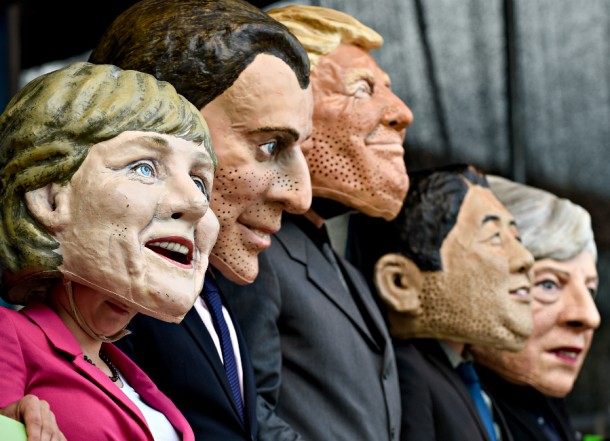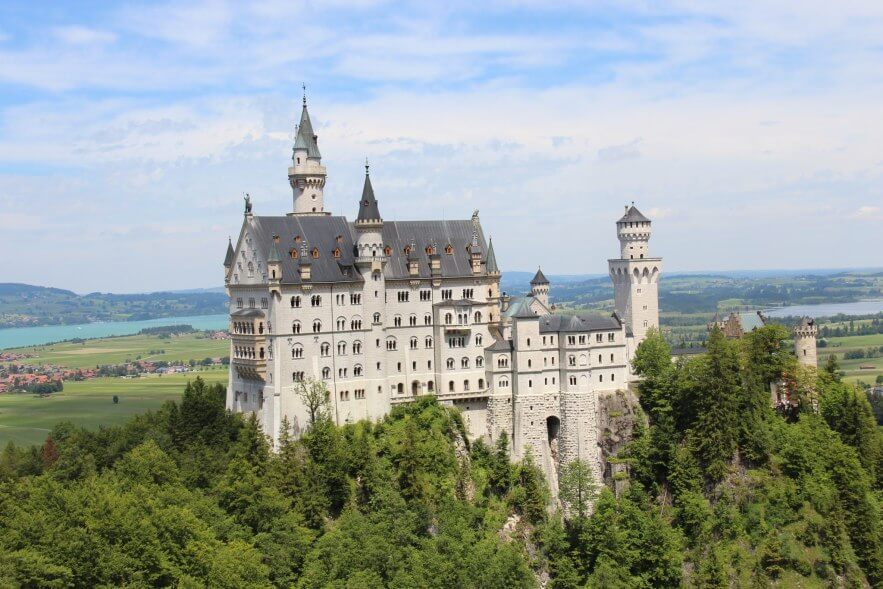-OpEd-
Is this China's big moment? The World Economic Forum in Davos is welcoming Chinese president Xi Jinping as a special guest. It's the first time a Chinese leader has attended the event. It marks a historic moment, not least because it comes just a few days before Donald Trump will be sworn in as the new president of the United States of America. Trump symbolizes chaotic populism. His trademark attacks include lashing out at "the elite" and the free trade that has governed the last century — exactly the sort of things the Davos gathering stands for.
Trump's election, Britain's departure from the European Union, the old continent paralyzed by crises, self-doubt and right-wing populists — the long-standing world order seems to be falling apart. Theories of the insidious downfall of the West have been circulating in China since the global financial crisis of 2008. With Trump as president, the U.S. seems to have reached a turning point as a leading world power. Trump is unpredictable and aggressive. Moreover, he has already declared his country's withdrawal from international trade and climate protection agreements.
"The U.S. made room for China a lot earlier than expected," says Sebastian Heilmann, director of the China think tank Merics in Berlin. "For China that's a major opportunity. Beijing now wants to help shape globalization according to its own needs."
For Beijing, Davos is the ideal stage to promote its agenda. The last couple of years, China has benefited from globalization like no other country. But China also wants to change the rules of the game because it often feels like it's unfairly treated in the global capital markets.
Chinese actors
There are areas like health policy and climate protection where China has demonstrated its readiness for global cooperation. But proclaiming China the new climate change pioneer seems a bit overstated. The Asian country remains the biggest polluter worldwide — by far. Although China has been called the new "standard-bearer of global free trade," it's a theory that has absolutely nothing to do with reality.
One thing's for sure: The country has become a global power and has a right to claim international recognition. It has been the world's second largest national economy for a while now. Chinese foreign investments are constantly on the rise. The chief executives and companies accompanying Xi to Davos underscore the global entitlement of Chinese actors: Jack Ma's e-commerce giant Alibaba is one of them, just like Wang Jianlin's conglomerate Wanda that's buying up Hollywood right now.

Jinping in Davos on Jan. 17 — Photo: WEF screenshot
Since Trump's election, Beijing's propaganda presents China — not without satisfaction — as the only reliable provider of growth and holds up its policies as an enlightened system that gives populism no chance. The Financial Times writes that Xi will try to present himself in Davos as "one of the few responsible adults left on the global stage." In reality, China has sought for years an active role on this stage by promoting flagship projects such as the Asian infrastructure investment bank or the New Silk Road.
But taking a look at how these projects developed, it becomes clear that China is just trying to satisfy an agenda of national interest. Obviously, that's not in itself reprehensible, but if one pretends to be the guardian of the New World Order, it would help to follow the rules and play fair. That has not been the case with China. One striking example is its reaction to the verdict given by the International Criminal Court in The Hague last year, which declared China's territorial claims in the South China Sea mainly null and void. China simply ignored the judgment.
Another example: A study recently published by the think tank Merics concluded that China is proceeding in the "exact opposite" direction of free trade and fair competition. China's own economy is being sealed off and foreign competitors are systematically hindered. In Davos, China will moan about the new move toward "protectionism" and yet, it's the best example of an economy blocking foreign investors and excluding them from obtaining a real market share. For that exact reason, European investment in China has been dropping for several years now.
China could help itself, and the world, if it started to break up its crumbling state industry, open up its economy and give privatization a real chance. Reforms like these were promised by Xi when he took office in 2013. But there has been no economic policy changes so far mainly because the Communist Party of China, particularly under Xi, fears a loss of control. China is closing itself off to the world more and more each year.
Xi holds all the power — in politics and society, his people demand total control and absolute loyalty. Chinese propaganda pushes a certain ideology, punishes critical thinking, and demonizes the West as the new enemy. Xi's performance at Davos was rich in irony — most notable when we observe, in the Swiss mountains, communist China rubbing shoulders with the old elites, ever more exposed to the onslaught of unsatisfied people and nations all over the world.
See more from Opinion / Analysis here





